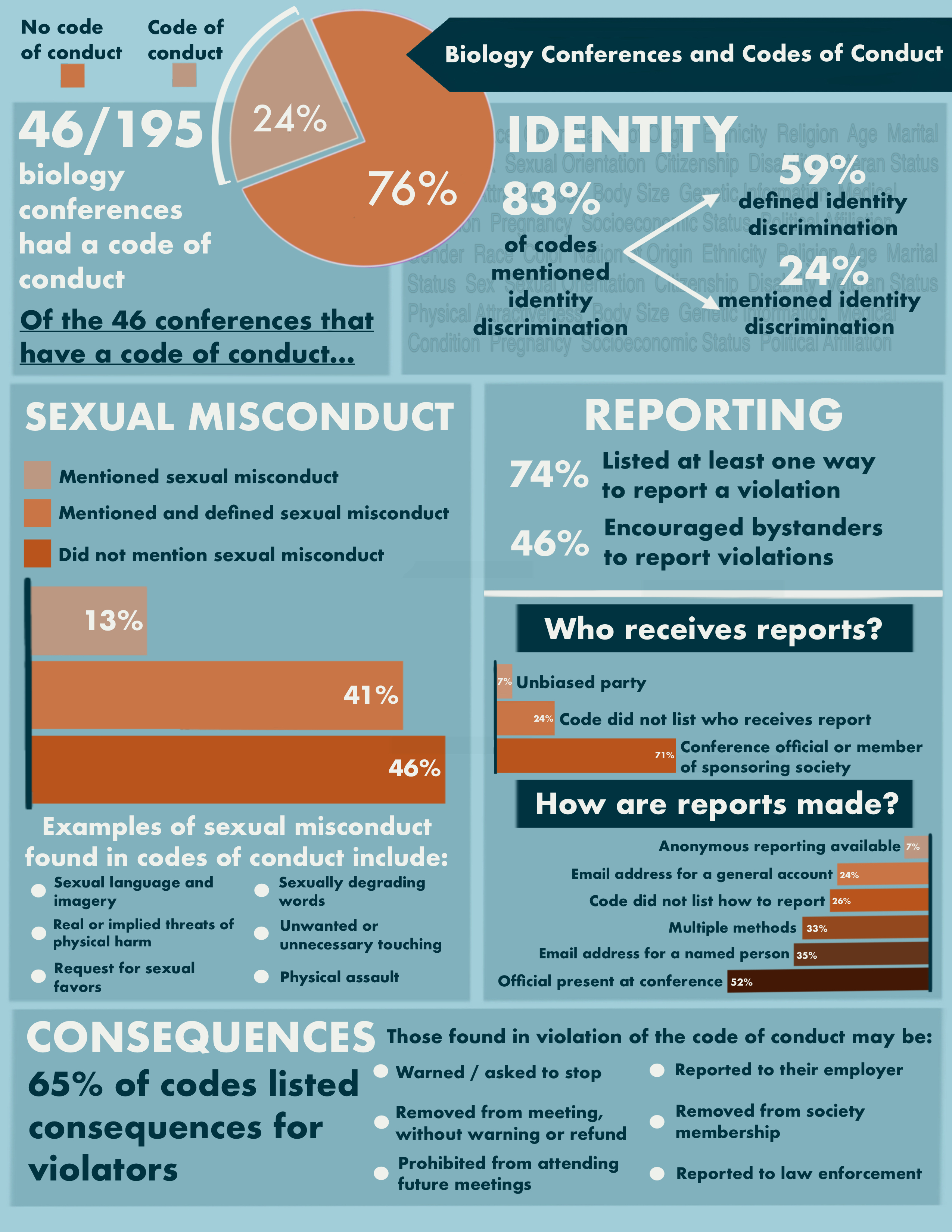
Research Suggests National Science Conferences Can Improve Diversity Inclusion

A team of scientists led by Chicago Botanic Garden and Northwestern University graduate students found that more than three-quarters of biology conferences do not have codes of conduct and the codes that do exist are insufficient in protecting historically marginalized groups. Conferences are beneficial for career advancement and networking, but can exacerbate inequities and power differentials based on racism and sexism, which harm historically marginalized groups. Codes of conduct that clearly detail unacceptable behaviors and how to report them can help stem the attrition of diverse scientists. In a recent paper published in the Proceedings of the National Academy of Sciences, graduate students set out to examine codes of conduct at biology conferences in the United States and Canada. They found that only 24% of the 195 surveyed conferences had such codes of conduct. Of those with codes, 43% did not mention sexual misconduct, 17% did not mention identity-based discrimination, 26% failed to include a way to report violations, and 35% lacked consequences for misconduct.
Lead author and Ph.D. student Alicia Foxx makes it clear: “We didn’t find a single conference that hit all the marks. All have room to improve.” Conferences that lack codes risk creating and perpetuating environments that make underrepresented groups feel unwelcome, actively cause harm, and lead them to leave careers in science. The study provides recommendations for conference organizers that are easily accessible, explicitly address identity-based discrimination and sexual misconduct, provide channels for anonymous, impartial reporting, and clear consequences. These efforts will improve inclusivity and reduce the attrition of scientists who have been historically marginalized.
The infographic below summarizes the findings with examples of identities, types of sexual misconduct and consequences from violating codes taken from the codes of conduct in our data set. Image courtesy of Katherine Andrews.
Graduate students: Alicia J. Foxx, Taran M. Lichtenberger, and Lea K. Richardson
Faculty: Rebecca S. Barak
Former postdoctoral researcher: Evelyn Webb Williams

